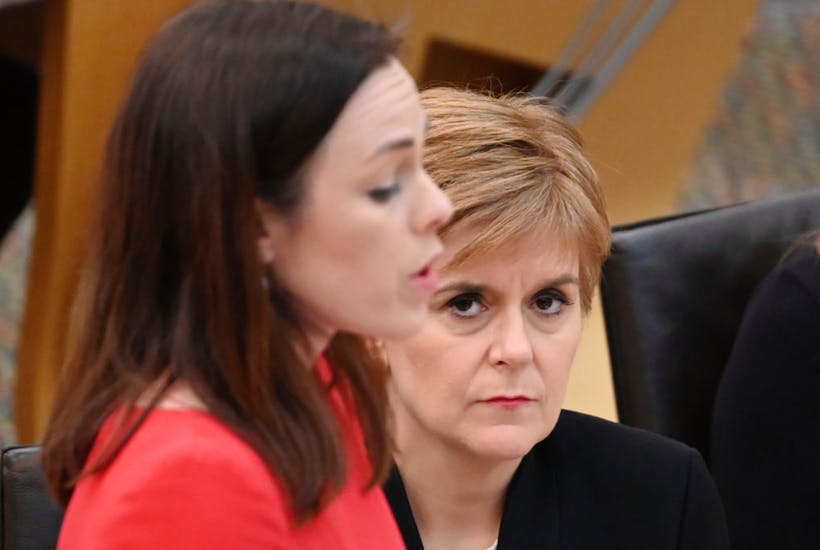Few ministers are tested as abruptly as Kate Forbes has been. The SNP’s junior finance minister was promoted to the Scottish cabinet ten days ago and three weeks after Derek Mackay’s resignation forced her to deliver the budget with hours’ notice. Nicola Sturgeon’s minority government can typically rely on the dutiful support of the nationalist Scottish Greens but, come budget time, the finance secretary has to crack out the national credit card and buy the swampies off.
Given the circumstances of Mackay’s departure and Forbes’ sudden elevation aged just 29, the Scottish government was more vulnerable than ever. Green leader Patrick Harvie could have produced a wish list and come away with his biggest ever budget haul. The SNP couldn’t afford a budget stalemate and many ministers in Forbes’ position would have showered the Greens in cash to get them onside. Instead, she has agreed to £95m in additional funds for councils, £45m for low-carbon projects and £18m for the police.
The modesty of these concessions is striking. This time last year, the Greens got £90m for local government, the raising of the cap on council tax hikes, a tourism tax and a workplace parking tax. In 2018, Mackay gave them an extra £170m for councils, pay rises for 75 per cent (rather than 51 per cent) of public sector staff, and the closing of an income tax loophole worth £55m. The previous year, Harvie secured £160m for the council grant, £35m for the Scottish Enterprise quango, £25m for police reform and maintenance of the higher income tax rate threshold at £43,000.
Scottish Greens would point to the new finance secretary’s commitment to free bus travel for those aged 18 and under. Indeed, Harvie boasted about ‘securing this important free bus travel deal’. Parse Forbes’ language, however, and there is plenty of room for the SNP to renege. She characterised her pledge as ‘in principle’ and ‘subject to the completion of the necessary preparations, including research and due diligence’. If given the green light, the scheme would ‘begin in January 2021’, Forbes said. Noticeably, she didn’t specify if that meant the full rollout or a pilot or a staged phasing in. Suspicions can only be bolstered by the budget allocation announced: £15m, nowhere close to the sum needed.
Forbes looks set to get her first budget passed in return for a modest increase in councils’ pocket money and a vaguely-worded undertaking. Even if she delivers the bus scheme in full, she has bought the Greens’ support at bargain basement prices and done so without having to touch income tax rates or completely plug the hole in local government finances. Harvie may be an easy sell but not all of his colleagues are and they must know they could have come away with much more.
The budget has still to pass but if it does it will represent an overdue win for the Scottish government. Education secretary John Swinney is failing, ‘trouble-shooter’ health secretary Jeane Freeman is not turning things around. But the new finance secretary seems to have hit the ground running. Anyone who doubted Forbes should be able to see from these budget negotiations that she is tougher and cannier than they gave her credit for. Others would have conceded more — her predecessor often did — yet she appears to be made of stauncher stuff. Forbes was put to the test and, to crib Enoch Powell, ‘the substance under test consisted of ferrous matter of the highest quality’. The challenges ahead will be fiercer, not least the consequences of chronic underfunding of local government, but chalk this one up as a victory for the Iron Lassie.







Comments